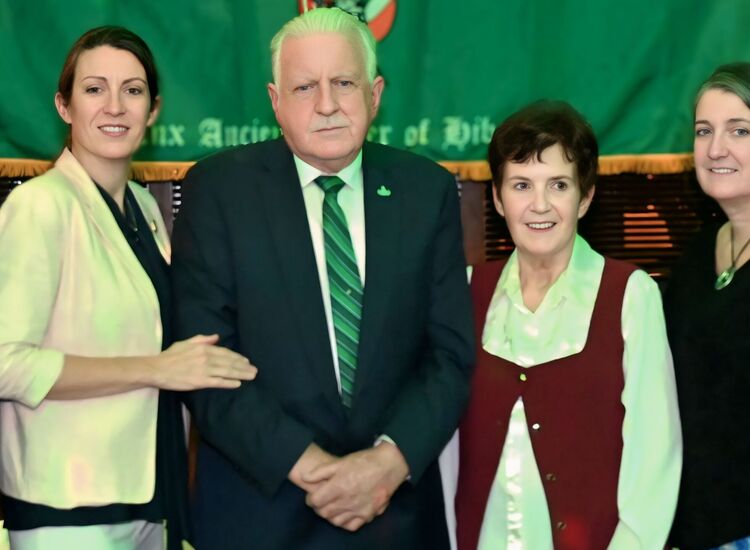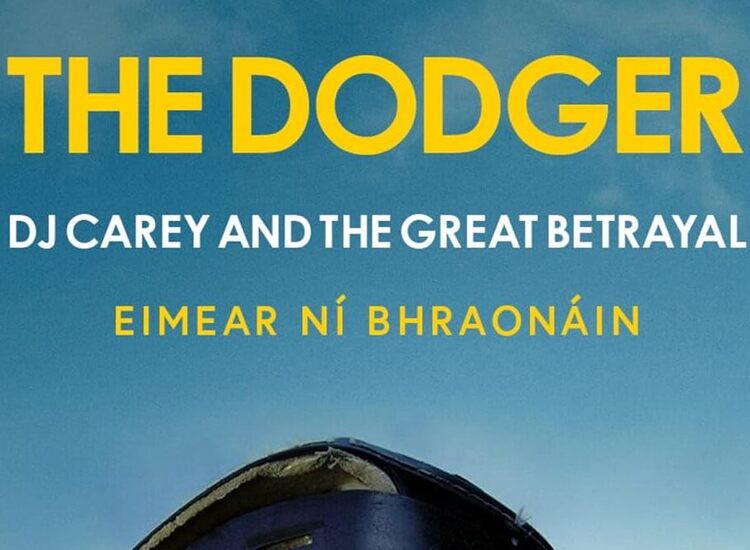Prime Minister Boris Johnson. [SAM BOAL/ROLLING NEWS.IE]
By Peter McDermott
Writer and veteran Tim O’Brien said he came from a town in Minnesota “that congratulates itself, day after day, on its own ignorance of the world: a town that got us into Vietnam. Uh, the people in that town sent me to that war, you know, couldn't spell the word ‘Hanoi,’ if you spotted them three vowels.”
O’Brien, who was born the same year as Donald Trump, 1946, is considered the quintessential American chronicler of the soldier’s experience in Vietnam, with two works that have achieved iconic status: “The Things They Carried,” a novel, and the non-fictional “If I Die in a Combat Zone, Box Me Up and Ship Me Home.”
So perhaps he’s well-placed to attribute agency to regular citizens as much as to “the Man” or elites or the industrial-military complex.
Somehow, the O’Brien quote brings to mind the line from “Blazing Saddles” by Gene Wilder’s character to Cleavon Little’s, “You’ve got to remember that these are just simple farmers. These are people of the land. The common clay of the new West. You know… morons.”
It’s not right to apply that epithet to the electorate of any country, but in recent years there’s been a tendency internationally for voters to accept moronic and buffoonish behavior from the people they vote for.
Give the average person a Rubik’s Cube to solve and their instinct would not be to smash it with a hammer. But lots of people, it seems, cheer on the equivalent in the political sphere.
John Harris, a thoughtful Guardian columnist, has suggested that Boris Johnson is “channeling a punk ethos to force through Brexit.” He acknowledged Fintan O’Toole’s “Heroic Failure: Brexit and the Politics of Pain” as a source for the cultural reference and added, “appropriately enough John Lydon – AKA Johnny Rotten – supports our exit from the EU.”
Harris said, “We are on our way out of the EU because of a collective set of desires akin to the punk-era urge to break things, along with a connected inability to channel resentment into anything more than gestures of self-harm.”

John McCain died a year ago this Sunday.
The most famous of the new right-wing populists, Trump, has said that if he were to shoot someone on Fifth Avenue, he’d get away with it. The former reality-TV star understands that his base loves the posturing stage villain and that it’s largely too invested in him to do due diligence. Hence their happy state of denial about what most of the rest of us believe to be the truth — Trump’s not playing a villain; he is one.
Not wanting to know is essential for people who ordinarily believe passionately in the rule of law, including many cops. A respected Republican prosecutor presents a slam-dunk case for obstruction of justice? Just pretend you didn’t hear it or know about it. Likewise the zero degrees of separation from confederates of the mafias of two countries.
There are Catholics who appear to have no problem with the presidential fawning over atheistic authoritarian leaders nor with his persecution of Catholic parents and children at the southern border and elsewhere.
There are those who say they back the cause of labor but prefer not to know about the appalling conditions experienced by the “Polish Brigade,” a group of undocumented workers from Europe that helped build Trump Tower.
In his biography, “The Rise of Donald Trump,” David Cay Johnston has written: “To [labor fixer and FBI informant Daniel] Sullivan, only greed and an utter disregard for human life could allow Trump to let the Polish Brigade work without the hard hats or the facemasks they needed to keep asbestos from entering their lungs. ‘Men were stripping electric wires with their bare hands,’ Sullivan later testified.” That sorry story is detailed in Chapter 9.
The Pulitzer Prize-winning investigative journalist Johnston entitled Chapter 4 “A Sickly Child.” It’s about William Trump, who was born days after the death of his great-grandfather Fred Trump Sr.
The baby’s father, Fred Trump III, eulogized the patriarch at his funeral in July 1999 as a “generous man” who looked after everyone in the family. The grandson was soon to get a very rude awakening.
The baby was very seriously ill from birth: he suffered seizures, and twice stopped breathing in his first days (he was later diagnosed as having cerebral palsy). Luckily, all family members were covered by a health plan run out of the family business and Robert Trump, brother of Donald, reassured his nephew that everything would be fine.
Everything wasn’t fine. The New York Times’ special investigation of 2018, working with tax lawyers, uncovered a “pattern of deception” in Fred Sr.’s finances and revealed the extraordinary lengths the family went to ensure that as little possible of his hundreds of millions would fall into the government’s hands upon his death. One finding was that Donald Trump “received at least $413 million in today’s dollars from his father’s real estate empire, much of it through tax dodges in the 1990s,” and that throughout his life his parents found ways of transferring chunks of their wealth to their “self-made” son. But back in 2000, the most controversial aspect of Fred Sr.’s will was the exclusion of the family of his deceased first-born son, Fred Jr. In common with the other grandchildren, Fred III and his sister Mary would get a token $200,000 apiece. That would not have covered William’s initial medical expenses had there been no insurance.
Things soon got nasty. The will was contested by the family of Fred Jr., as the lawyer of Fred Sr. had warned it inevitably would be given that it was “tantamount to disinheriting them.”
Writes Johnston, “Donald Trump’s reaction was swift and vengeful. On March 20, 2000, one week after the lawsuit was filed, Fred III received a certified letter stating that all medical benefits would cease on May 1. For little William, this was a potential death sentence.”
He continues, “Lisa Trump told Heidi Evans of the New York Daily News that she ‘burst into tears’ on learning that her sickly son was in jeopardy.”
Donald Trump said to Evans, “Why should we give him medical coverage?”
The matter was eventually settled out of court.
Johnston quotes Fred III saying of his paternal uncles and aunts, “These are not warm and fuzzy people. They never even came to see William in the hospital.”
His sister Mary said: “My aunts and uncles should be ashamed of themselves. I’m sure they are not.”
Trump’s taking a sick baby hostage, in essence, and his insulting attitude towards John McCain, who died a year ago this Sunday, are elements of the same pattern of behavior, with the same end, lauded by the likes of Steve Bannon and Stephen Miller, which is to challenge and ultimately break down traditional notions of what’s right and what’s not.
Most know the outline of McCain’s story prior to his involvement in politics. Suffice to say here that he was held by the North Vietnamese as a prisoner of war from Oct. 26, 1967 until March 14, 1973.
“I like people who weren’t captured,” said the guy whose mysterious “bone spurs” kept him from serving.
Now, if you encountered a new neighbor mowing the lawn or you were introduced to a friend of a friend at a barbecue who came out with that line, and you were sure it wasn’t ironical or some form of dark humor, you’d think: “What an ignorant person.”
You’d be likely appalled, too, if you understood that a friend or relative really did believe in their heart that Ebenezer Scrooge, to use a prosaic example from fiction, is someone who’s just trying to make a living, while Bob Cratchit and his family, Tiny Tim included, are a bunch of losers.
We aspire to be a society organized around a set of values and institutions. With regard to the former, we tend to disagree mainly on which ones we emphasize over the others.
But we’re in trouble when norms and values are turned upside down entirely, and when a person or persons seek to cultivate the authoritarian impulse in a section of the population and make others complicit in behaviors they wouldn’t otherwise tolerate. (If you saw someone who is disabled by a chronic condition mocked by another customer in a store, would you speak up? When Trump did that to a journalist in 2015, many laughed and others turned away silently in embarrassment.)
Some on the right side of the aisle saw the danger from the beginning. George Will, when being interviewed this summer about his new book “The Conservative Sensibility,” said: “I believe that what this president has done to our culture, to our civic discourse … you cannot unring these bells and you cannot unsay what he has said, and you cannot change that he has now in a very short time made it seem normal for schoolboy taunts and obvious lies to be spun out in a constant stream.”
In an another interview, Will said: “It’s amazing to me how fast — and we saw this in the 20th century in a number of ways — at how fast something could go from unthinkable to thinkable to action.”








